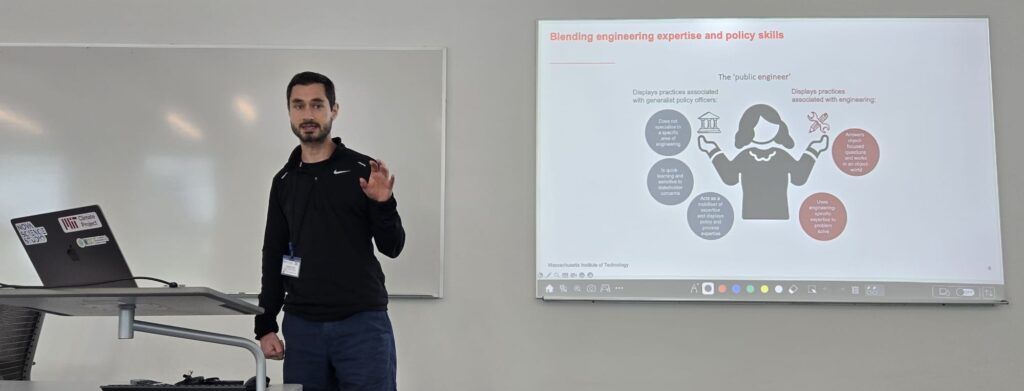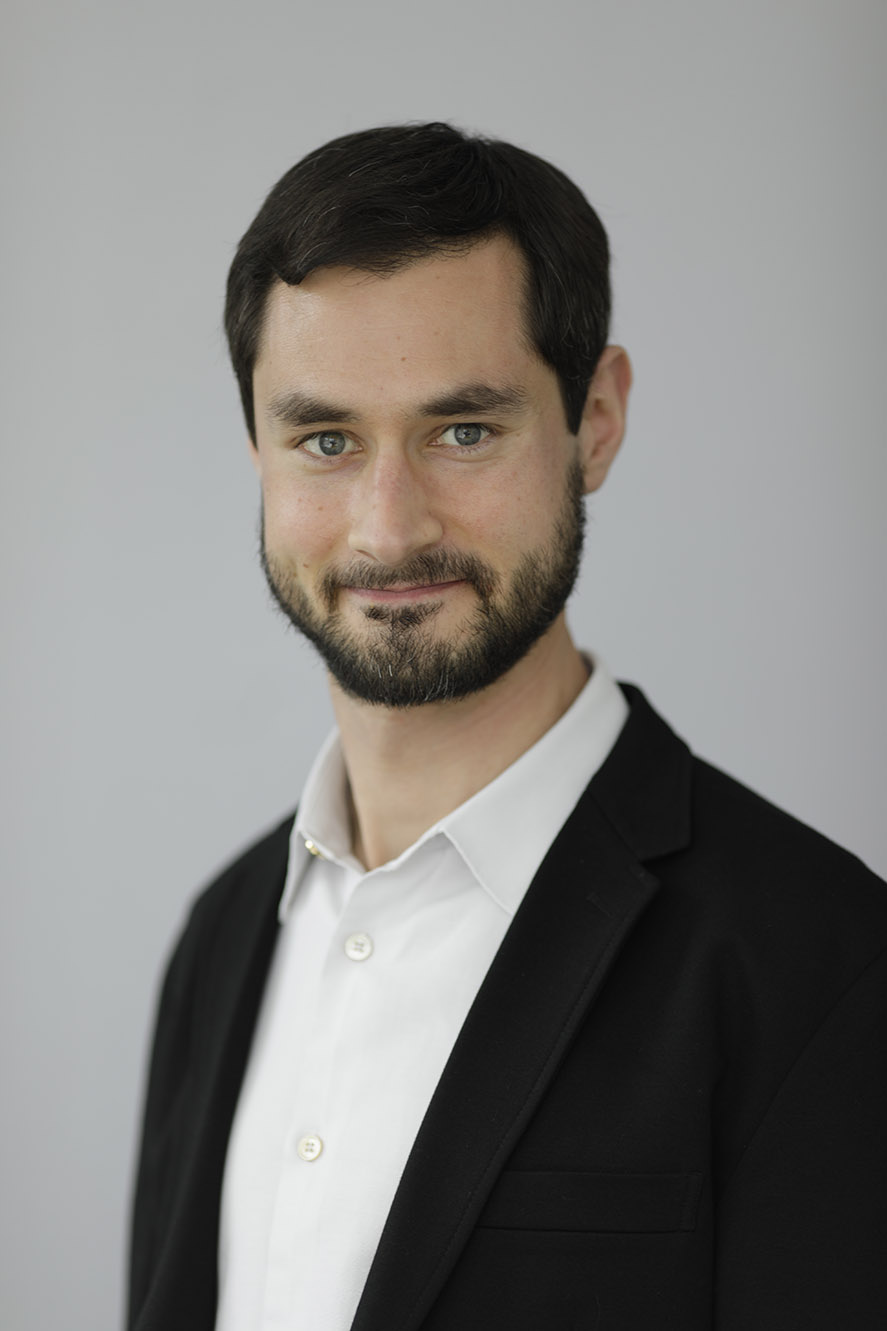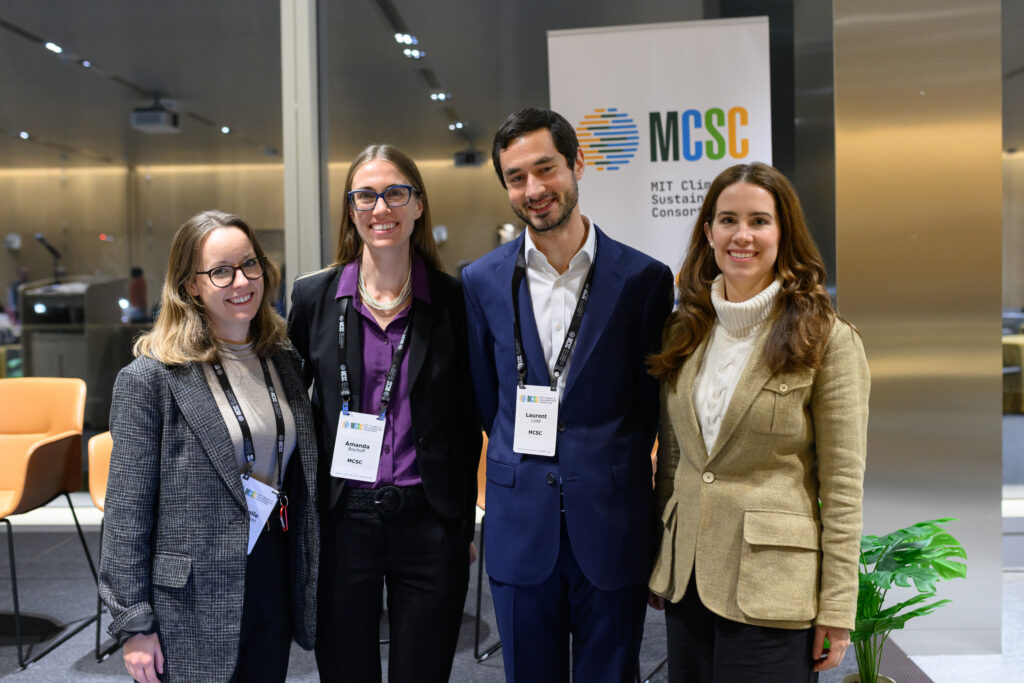Catching Up with Impact Fellow Laurent Lioté: Exploring Policy and Engineering through an Anthropology Lens
August 28, 2025

Laurent speaking with MCSC member companies and the MIT community during a round-table discussion at the 2024 MCSC Symposium.
MCSC Impact Fellow Laurent Lioté works at the intersection of policy, engineering, and anthropology. His work explores how engineering and policy experts can effectively work together to create net zero policies, what the barriers to collaboration might be, and how to overcome them – topics he explores in his recent publication. He is also interested in understanding how different organizational structures and cultures impact the work of engineers and policy experts working in government. At MIT, Laurent works jointly with the MCSC, the MIT Energy Initiative (MITEI), and the MIT Climate Policy Center (MCPC). We spoke with him about his current research and where it is headed, his latest article in Policy & Politics, and some of his highlights from working with the MCSC so far.
What are you currently working on?
The overall aim of my work is to understand how policymakers in government use technical information when making climate and sustainability policy. And then use these insights to strengthen the collaboration between policymakers and those providing them with technical input (i.e. industry actors, academic researchers, technical advisers within governments).

Laurent presenting at the Transdisciplinary Engineering conference.
In line with this aim, my current project looks at the use of technical information (especially engineering evidence) by congressional staffers working on U.S. energy policy. For the last six months I have been interviewing staffers working for Democrat, Republican and Independent representatives and senators to understand how they use technical information when drafting legislation. This includes mapping out the sources of information, understanding how technical information is factored into policy decisions (and combined with socio-political considerations), and identifying potential barriers to the take-up of technical evidence. I am currently writing up my findings and using those insights to develop guidance on communicating technical findings to policymakers in an impactful way.
As a next phase in this project, I will be engaging with MCSC member companies and different parts of MIT to act on my findings and gather additional feedback. I also plan on conducting interviews with the different groups that provide information to congressional staffers to identify additional barriers to policy-engagement from their perspective.
My hope is that this project, combined with my prior work on the UK executive branch, generates strategies to strengthen the take-up of technical evidence in climate and sustainability policy.

"My hope is that this project, combined with my prior work on the UK executive branch, generates strategies to strengthen the take-up of technical evidence in climate and sustainability policy."
Tell us about your recent article in Policy & Politics
The article that was recently published in Policy & Politics explores the nuanced process of policymaking, focusing on how technical experts – and particularly engineers – can effectively advise policy makers to implement change. With my co-authors, Adam Cooper and Neil Strachan of University College London (UCL), we highlight effective ways to frame technical insights so that the conversations with policymakers remain productive and lead to actionable next steps. The piece underscores how engineering experts and policy officials can develop a common language to collaborate and co-construct policy solutions.
Our research contributes to the understanding of engineering advice deployment in policy making and offers guidance for practitioners on the skills needed to work at the engineering-policy interface. This is important because many of the solutions to the climate and sustainability challenges we currently face require collaboration between engineers and policy officials to be technically feasible and socially acceptable.
"Many of the solutions to the climate and sustainability challenges we currently face require collaboration between engineers and policy officials to be technically feasible and socially acceptable."
How does your background in policy shape the work you are doing with the MCSC?
I have had a slightly unilinear career path and I think all of my academic and professional experiences shape my current work. I started off studying anthropology which has given me a good grounding in social science methodology, which I still use today. It has also taught me the importance of looking at issues from different points of view. I then went on to do a master’s degree in public policy as I sought to apply the skills I learned during my undergraduate to wider social challenges. During my master’s I learned a lot about how governments work and how policy decisions are made, which is invaluable for my work at the MCSC.
After graduation I worked in consulting for a few years, helping industry clients adopt new technologies to improve their operations and respond to government regulations. I gained a lot from my experience in consulting, including a better understanding of industry needs and the interplay between industry and policy.
In 2019, building on my academic background and professional experience, I started a PhD in public policy. For five years I explored how the UK government uses engineering evidence in drafting renewable energy policy. My work used anthropological research methods and public policy theory to identify the barriers that limit the collaboration between engineers and policymakers, and how to overcome them. My experience in consulting came in handy to communicate my findings to audiences beyond academia and increase the impact of my work.
All of this led me to the MCSC and has shaped my current project on the use of technical information by US congressional staffers in drafting energy policy.

Laurent with colleagues at the 2024 MCSC Symposium.
What are you most proud of during your time with the MCSC so far?
One thing would be my involvement with the MIT Senior Congressional Staff Seminar last spring. Working with the MIT Climate Policy Center, I helped with the organization of a three-day seminar that brought together MIT faculty and 27 congressional staffers on campus to discuss technologies and strategies for responding to energy and climate challenges. Prior to the event, I helped MIT faculty tailor their message to a policy audience. Afterward, I wrote a feedback report to help with future iterations of the event. I particularly enjoyed the opportunity to action some of my research findings to improve research-policy engagement!
